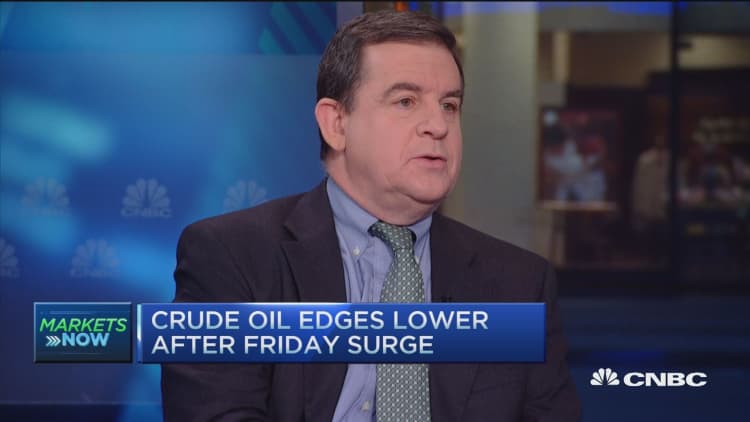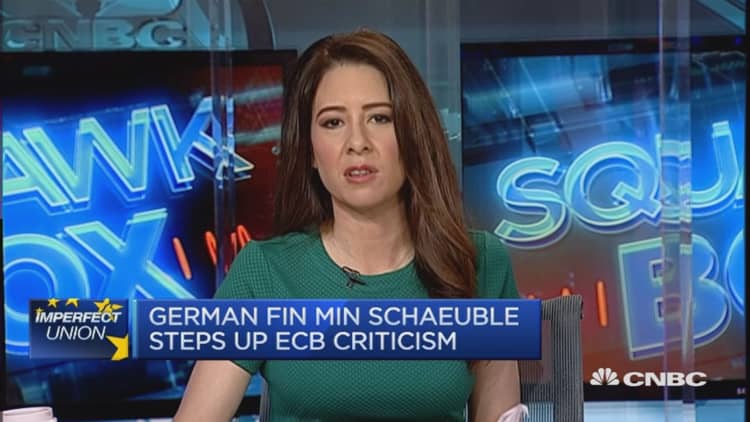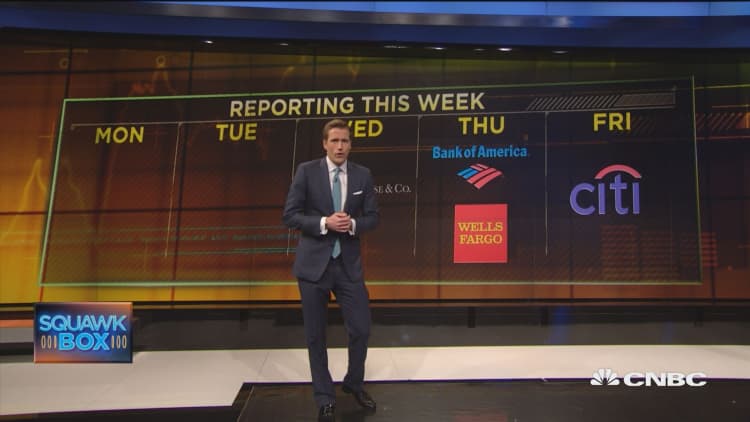



One word is on the lips of Wall Street CEOs as they head into a potentially rocky earnings season for the first quarter of 2016: Liquidity.
Analysts are expecting a disappointing quarter and leaders of Wall Street firms are reiterating the same key phrase as they sail into the storm. The more liquidity an investor has — that is to say, the more unspent capital they are armed with to confront unforeseen challenges arising from existing investments — the better they are expected to withstand market pressures in an economic downturn.
Some are optimistic in liquidity forecasts; others are not.
BlackRock Chairman and CEO Larry Fink thinks negative interest rates will force investors to move into less-liquid investments. Fink said in the investment manager's annual shareholder letter that investors and oil-producing nations are being squeezed for liquidity, something that might have major repercussions.
"Particularly worrying is the adoption of negative interest rates by central banks attempting to spark economic growth," Fink wrote in the letter, published Sunday. "Their actions are severely punishing the world's savers and creating incentives to reach for yield, pushing investors into less-liquid asset classes and increased levels of risk, with potentially dangerous financial and economic consequences."
A lack of liquidity led to failures on Wall Street in the financial crisis eight years ago. Elsewhere on Wall Street, bank CEOs say that it's different this time around, and that they are better prepared to weather a storm in markets.
"We have increased our capital and liquidity, decreased our risk, and have stayed focused on efficiently and prudently managing our resources," Goldman Sachs CEO Lloyd Blankfein told investors in the bank's annual shareholder letter earlier this month. Later in the missive, he stated "[W]e believe that the value being placed on liquidity provisioning is likely to grow."
Blankfein's is a rational take, especially considering what's happening elsewhere in markets. A Moody's report Monday highlights its forecast for the global speculative default rate to hit 4.3 percent next quarter, topping its long-term average for the first time since 2010. This is largely owed to rising defaults in the energy, metals and mining space, according to the report.
Read MoreStocks around the world are hitting a wall: Technician
Defaults in the energy sector will have a direct impact on big banks, most of which are expected to announce updated and bigger capital allocations to cover losses on loans. JPMorgan Chase CEO Jamie Dimon explained in his letter to shareholders last week that lately liquidity has become more difficult to come by, and that no amount of planning or balance sheet cash translates to a guarantee.
"Having enough capital and liquidity, and even the most solid fortress controls, doesn't make you completely safe and sound," he wrote, adding later, "[i]n any event, lower liquidity and higher volatility are probably here to stay, and everyone will just have to learn to live with them."






